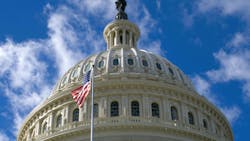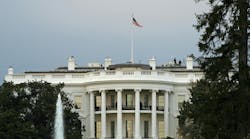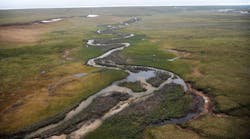API looks for Trump to reverse Biden’s ban on ANWR leasing, repeal EV mandates
Incoming President Trump should reverse the Biden administration’s ban on leasing on 625 million acres of federal lands in Alaska’s Arctic National Wildlife Refuge (ANWR), restrictions on offshore oil and gas leasing and development in federal waters, and mandates requiring electric vehicles, American Petroleum Institute (API) President Mike Sommers told reporters Jan. 13, 2025, in press briefing.
Sommers said he believes Trump will move aggressively on oil and gas on his first day in office but predicts most of the executive orders will direct agencies to act to repeal or modify Biden administration regulations.
Trump and his team are motivated to boost US production, especially after the Biden administration issued new, more robust sanctions on Russian oil and gas exports, Sommers said (OGJ Online, Jan. 10, 2025).
“Oil prices are rising to their highest level in the past 6 months,” he said. “When you take barrels off the market you need new production” for balance and it's better to have that oil and gas from the US than depending on OPEC and other producers, he said.
On ANWR, Sommers said he believes Trump has the authority to repeal Biden’s order to ban future leasing. “We will defend that position in court,” he said.
Congressional acts for oil and gas
Congress could also repeal the ANWR ban as part of a reconciliation act or in stand-alone legislation if Trump doesn't address the issue by executive order, he said.
As for LNG projects, while some in the industry are calling for a first-day reversal of the Biden administration pause on new projects, Sommers would prefer that the Department of Energy (DOE) or Congress act, which should make any approvals legally durable to “stand the test of time.”
If industry must appeal through the Administrative Procedures Act, a reversal could take years, Sommers said. He urged the incoming administration “to swiftly process all pending export applications now languishing at DOE.”
Sommers implored the new Congress to pass comprehensive permitting reform, including changing the National Environmental Protection Act (NEPA) to provide greater certainty on timelines and scope of environmental reviews. API said the Biden-era NEPA Phase 1 and Phase 2 rules are “inconsistent with the original statutory intent.”
API wants to see Congress pursue judicial reform to clarify when, where, and who can file legal challenges and alter the Clean Air Act to ensure “the statute is only used as intended, and not as a ‘de facto’ veto for politically disfavored infrastructure projects.”
Congress should advance sensible tax policy, Sommers said. API will work with Congress to retain the 21% corporate tax rate, maintain and extend tax provisions for domestic infrastructure investment, and preserve international tax provisions that protect US overseas investments from “double taxation.” Many of these tax provisions will expire at yearend without Congressional action.
Despite Trump’s interest in boosting US oil and gas supplies, his proposed 10-20% tariffs on all imports could harm the US oil industry, Sommers said, noting that “ensuring the open access of American energy to global markets” is an API priority.
“The US is heavily reliant on heavy crude from Canada” and other countries because 40% of US refineries are not tooled to refine US crude. “The free flow of goods between the US, Mexico, and Canada” is central to ensuring that the US has enough oil to meet domestic needs. While the US is the world’s largest oil and gas producer, it relies on imports to refine gasoline, diesel, and jet fuel. Canada, Mexico, and other foreign nations might retaliate with their own tariffs should Trump pursues his plan.
API is asking the Trump administration to exempt crude oil, natural gas, and critical supply chain inputs from all new tariffs.
Trump can boost US production by requiring the Bureau of Land Management to expand responsible onshore leasing, the Bureau of Ocean Energy Management to revitalize offshore opportunities, the Bureau of Safety and Environmental Enforcement to ensure operational safety, and the Fish and Wildlife Service to responsibly administer conservation, Sommers said.
API wants the new Environmental Protect Agency to modify or repeal 18 new agency regulations, including: sections of the Clean Water Act and Clean Air Act; the tailpipe rule, the Renewable Fuel Standard; and new standards on methane and methane reporting, particulate matter, ozone, the waste emissions charge and greenhouse gas reporting rules.
About the Author
Cathy Landry
Washington Correspondent
Cathy Landry has worked over 20 years as a journalist, including 17 years as an energy reporter with Platts News Service (now S&P Global) in Washington and London.
She has served as a wire-service reporter, general news and sports reporter for local newspapers and a feature writer for association and company publications.
Cathy has deep public policy experience, having worked 15 years in Washington energy circles.
She earned a master’s degree in government from The Johns Hopkins University and studied newspaper journalism and psychology at Syracuse University.


